18 professors appointed at ETH Zurich
The ETH Board has appointed 18 professors at ETH Zurich in accordance with the application submitted by ETH Zurich President Lino Guzzella.
Upon application of the President of ETH Zurich, Professor Lino Guzzella, at its meeting of 25/26 May 2016 the ETH Board appointed a total of 18 professors, awarded the title of professor to one woman and took note of the resignation of one professor and thanked him for his services.
Appointments at ETH Zurich

Dr Ueli Angst (*1980), currently a post-doctoral student and lecturer at ETH Zurich as well as a consultant in the private sector, as Assistant Professor of Durability of Engineering Materials. Ueli Angst is a specialist in the durability of reinforced concrete structures – a subject that requires a knowledge of materials science, chemistry, electrochemistry and civil engineering. He soon realised that answers to pressing questions about the durability of infrastructure – from repairing existing structures through to the use of new and unfamiliar cements – can only be obtained using a scientific approach. As an SNSF-funded professor, Ueli Angst will make a substantial contribution to topics of relevance to the economy, such as how to maintain key infrastructure.

Professor Denis Burdakov (*1979), currently Professor at King's College, London, as Full Professor of Neuroscience. Denis Burdakov's research focuses on neural networks and processes that implement efficient and healthy interrelations between behaviour and the environment. He is particularly interested in how the brain processes information in order to control key behaviours – such as eating and sleeping – in an energy-efficient manner. His findings contribute to the treatment of diseases such as obesity and sleep disorders. The appointment of Denis Burdakov greatly enriches a number of different fields of research at ETH Zurich, as well as the collaboration with Zurich University Hospital.
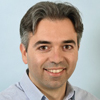
Dr Sebastiano Cantalupo (*1980), currently Senior Assistant at ETH Zurich, as Assistant Professor of Cosmic Structure Formation. Sebastiano Cantalupo's specialist area is structure formation in the early universe. He has set up a highly regarded research programme in which he combines observational projects with numeric simulation and analytical theory. In carrying out his observations he works with some of the world's leading observatories. Sebastian Cantalupo attracted great interest in the international scientific community for his discovery of giant gas structures around high-redshift quasars. Through his SNSF professorship he will ideally complement and strengthen ETH Zurich's work in the fields of cosmology and galaxy formation.
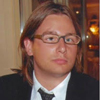
Dr Alessandro Carlotto (*1984), currently Junior Fellow at ETH Zurich, as Assistant Professor of Mathematics. Alessandro Carlotto is a very promising young scientist. His work encompasses differential geometry, nonlinear analysis and mathematical physics. The main focus of his research is on geometric variational problems arising in general relativity and conformal geometry. Alessandro Carlotto's international reputation and commitment to bringing on younger researchers, along with his wide-ranging interests covering diverse areas of mathematics, will make a significant contribution to ETH Zurich.

Dr Nathalie Dubois (*1981), currently Group Leader at Eawag, as Assistant Professor of Palaeolinmology. Nathalie Dubois is an internationally recognised expert in lake sediments. She uses sediment cores to reconstruct past environmental conditions. At ETH Zurich her work will focus on the impact of early human activity on the ecosystems of previously uninhabited eastern Pacific islands. The results of her research will help her to draw parallels between past and present climate change, among other things. As an SNSF-funded professor, Nathalie Dubois contributes new research areas and additional expertise to ETH Zurich, and will further enhance the existing collaboration with Eawag in the area of palaeolinmology.
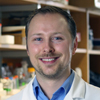
Dr Collin Y. Ewald (*1980), currently a post-doctoral student at ETH Zurich, as Assistant Professor of Extracellular Matrix Regeneration. Collin Ewald is an internationally acclaimed researcher in the field of the molecular biology of ageing. Among other things, he has successfully shown that almost all life-extending interventions protect and repair not only the interior of the cell, but also, in an unexpected way, its exterior (the extracellular matrix). His appointment will significantly strengthen fundamental research at ETH Zurich into the important topic of our ageing society / ageing healthily. As an SNSF-funded professor, Collin Ewald's aim will be to find out what impact improving the regeneration of the extracellular matrix has on extending a healthy lifespan.
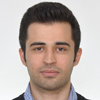
Mohsen Ghaffari (*1987), currently a doctoral student at the Massachusetts Institute of Technology (MIT), Cambridge, USA, as Tenure Track Assistant Professor of Computer Science. Mohsen Ghaffari is a highly promising young scientist who conducts research into theoretical computer science with a focus on distributed computing and network algorithms. He has won several awards for his work, which combines mathematical methods derived from probability theory and graph theory with algorithm design and analysis. His research connects with topics that are already being studied at ETH Zurich, as well as with new areas of research in the field of high volume data processing and social networks. Mohsen Ghaffari's appointment will strengthen the Federal Institute's leading position in these forward-looking subjects.

Professor Manu Kapur (*1974), currently Professor at Hong Kong Institute of Education, China, as Full Professor of Learning Sciences and Higher Education. Manu Kapur has achieved international recognition for his work on learning from mistakes. He has designed innovative mathematics programmes which show students where they have gone wrong, thus enabling them to learn. He has also been able to demonstrate how learning can be unproductive. This occurs when the student gains a superficial understanding with a negative effect on learning over the longer term. Manu Kapur will promote the Higher STEM Education research field and optimise teaching at ETH Zurich in partnership with the other academic staff, building on current scientific knowledge.
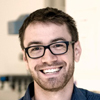
Dr Michael Nash (*1982), currently Group Leader in the context of an ETH Zurich’s Branco Weiss Fellowship at Ludwig Maximilian University (LMU), Munich, as Tenure Track Assistant Professor of Engineering of Synthetic Systems. Michael Nash is a scientist with great potential. His research focus lies in the detailed analysis, understanding and development of the molecular mechanisms that regulate the assembly of mechanically robust multi-enzyme complexes. This research orientation makes Michael Nash an excellent fit with the National Centre of Competence in Research "Molecular Systems Engineering", as part of which he will hold a joint professorship of both the University of Basel and ETH Zurich.
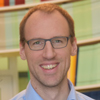
Dr Berend Snijder (*1981), currently post-doctoral fellow at the Austrian Academy of Sciences, Vienna, as Assistant Professor of Molecular Systems Biology. Berend Snijder is a highly innovative researcher. He develops imaging methods for large perturbation experiments on individual cells. His research objectives range from obtaining fundamental insights into cell behaviour through to applications in personalised medicine and developing new drugs. By means of his SNSF professorship, Berend Snijder will drive forward a number of promising research areas in the field of computer-assisted systems analysis of cells and in personalised medicine, thus strengthening ETH Zurich's leading international position in these subjects.

Professor Bruno Studer (*1977), currently SNSF-funded Professor at ETH Zurich, as Associate Professor of Molecular Plant Breeding. Bruno Studer's research focuses on developing breeding processes for forage crops to improve their yield and efficiency. These breeding processes include traditional applications using functional molecular markers as well as new concepts of genomic selection. His findings also help to produce animal products more ecologically and economically. The appointment of Bruno Studer as Associate Professor strengthens ETH Zurich's research into food security, one of its main research focus, and reinforces the collaboration with Agroscope. Agroscope is the Swiss centre of excellence for agricultural research, and is affiliated with the Federal Office for Agriculture (FOAG).

Dr Shinichi Sunagawa (*1978), currently Staff Scientist at the European Molecular Biology Laboratory, Heidelberg, as Assistant Professor of Microbiome Research. Shinichi Sunagawa is a highly competent and committed young scientist. He has already carried out pioneering research into highly complex microbial consortia using computer-assisted analysis. In particular, his methods for investigating specific microorganisms by means of large sequence data sets have attracted international attention. Shinichi Sunagawa's combined expertise in the fields of biochemistry and bioinformatics will make an important and promising contribution to the study of life sciences at ETH Zurich – a subject area which has gained an international reputation.
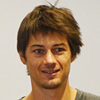
Dr Vincent Tassion (*1986), currently a post-doctoral student at the University of Geneva, as Assistant Professor of Mathematics. Vincent Tassion's area of research covers phase transitions in models of statistical physics – a key topic in probability theory. This work centres around describing and explaining physical and chemical phenomena using discrete models. In recent years, Vincent Tassion has grappled with a number of unanswered questions in this field, including phase transitions for three-dimensional models. He has succeeded in solving problems that had remained open for years. Through his appointment, ETH Zurich is gaining an outstanding young mathematician who will be a great asset to his colleagues and students.

Professor Konrad Tiefenbacher (*1980), currently Junior Professor at the Technical University of Munich (TUM), as Tenure Track Assistant Professor of Synthesis of Functional Modules. Konrad Tiefenbacher has gained a reputation as an original and innovative researcher. His specialist area is self-assembled supramolecular capsules as catalytic nanoreactors for chemical transformations. The aims of his research include making the reactors accessible for a broader range of solvents. With his particular strengths in synthetic-organic work, Konrad Tiefenbacher will ideally complement the National Centre of Competence in Research "Molecular Systems Engineering" as a joint professor of the University of Basel and ETH Zurich.

Dr. Roy Wagner (*1973), currently Research Fellow at Tel Aviv University, Israel, as Full Professor of History and Philosophy of Mathematical Sciences. Roy Wagner is an internationally acclaimed scientist who – very unusually – has multiple qualifications as a mathematician, philosopher of science and historian of mathematics. He is sought-after for his skills in mediating between the various approaches and methods used in mathematics, engineering, natural sciences and humanities. Roy Wagner is therefore the ideal holder of the newly created chair of History and Philosophy of Mathematical Sciences at ETH Zurich.

Dr Karin Würtz (*1978), currently Senior Assistant and Lecturer at ETH Zurich, as Assistant Professor of Immunoengineering and Regenerative Medicine. Karin Würtz is a globally recognised expert in inflammatory processes in spinal discs and other tissues of the locomotor system. The main goal of her research is to control tissue inflammation using natural and synthetic substances so as to prevent degeneration and encourage regeneration of the organ. By appointing Karin Würtz, who holds an SNSF-funded professorship, ETH Zurich is further enhancing its globally respected research into regenerative medicine and the emerging field of immunoengineering.
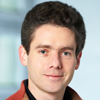
Professor Samuel Zeeman (*1970), currently Associate Professor at ETH Zurich, as Full Professor of Plant Biochemistry. Samuel Zeeman has established himself as a leading international expert in the field of starch metabolism in plants. In particular, his research looks at how plants use the primary products of photosynthesis – sugar and starch. His findings have contributed substantially to our understanding of how plants adapt to changing environmental conditions. These results are of exceptional practical relevance and have a part to play in the debate on the food security of future generations. Samuel Zeeman's commitment to teaching also makes an essential contribution to the transfer of knowledge and technology at ETH Zurich.
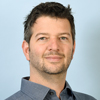
Dr Oded Zilberberg (*1979), currently a Research Associate in the research centre of a well-known Swiss company, as Assistant Professor of Quantum Condensed Matter Theory. Oded Zilberberg is a versatile researcher whose findings have attracted international attention in his field. His work focuses on coherent quantum phenomena at the interface of solid state physics and quantum optics with the aim of facilitating new applications in sensor technology and information processing. The appointment of Oded Zilberberg, who receives an SNSF-funded professorship, significantly strengthens ETH Zurich's research in the field covered by the National Centre of Competence in Research "Quantum Science and Technology".
Award of the title of Professor

Dr Ita Heinze-Greenberg (*1956), Senior Scientist and Lecturer at ETH Zurich, as Adjunct Professor at ETH Zurich. Ita Heinze-Greenberg is a globally recognised expert in the architecture of the 19th and 20th centuries. She works at the Institute for the History and Theory of Architecture at ETH Zurich, contributing to its research and teaching in important areas of interest.
Departure from ETH Zurich
Professor Savas Tay (*1977), currently Assistant Professor of Bioengineering, will leave ETH Zurich at the end of June 2016. Savas Tay was appointed to ETH Zurich in 2011. His well-regarded research combines the fields of systems biology and microfluidics. Savas Tay has made an important contribution to the development of teaching at the interface of technology and biology, not least by designing a unique course on optofluidics and biosystems analysis. He is leaving ETH Zurich in order to take up an appointment at another university.
The ETH Board would like to thank the departing professor for his services to science, teaching and academic administration.